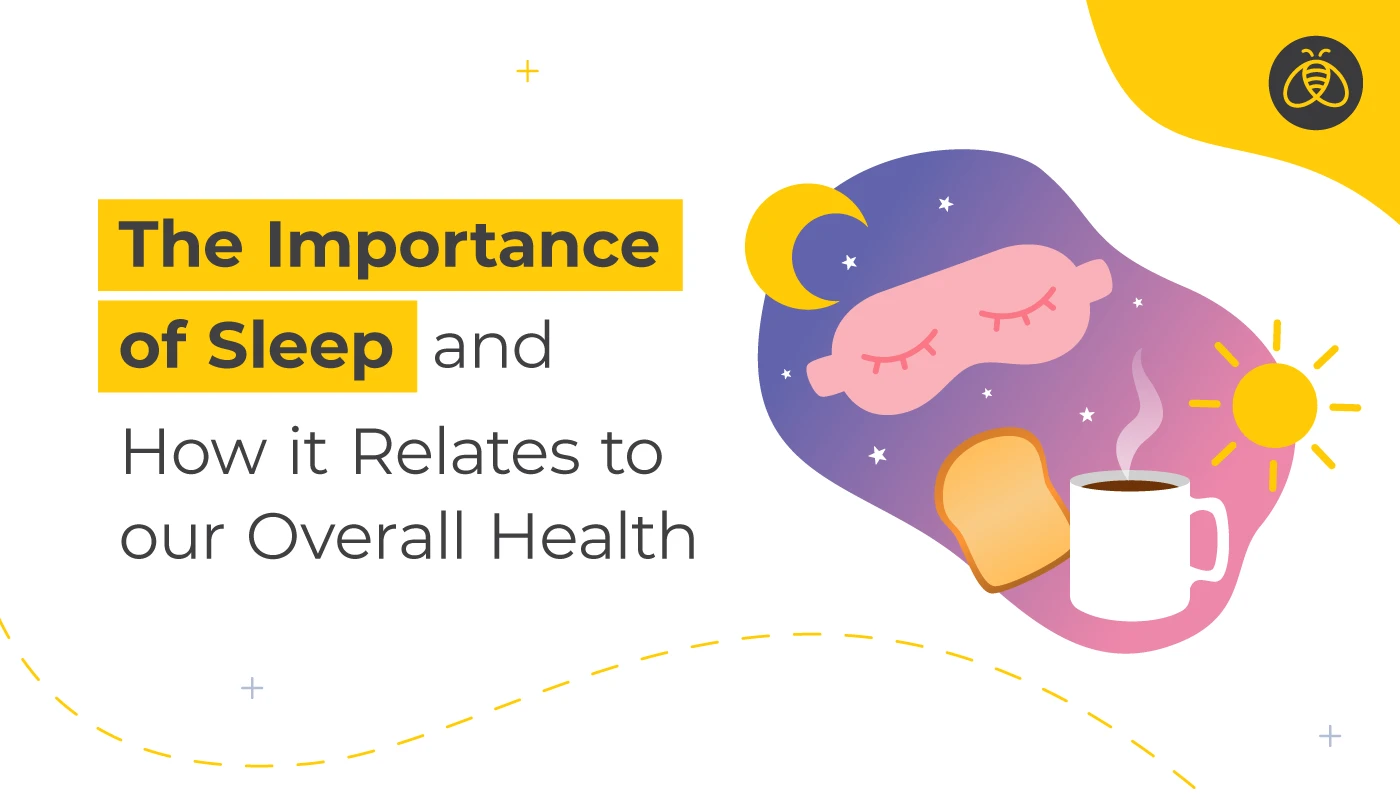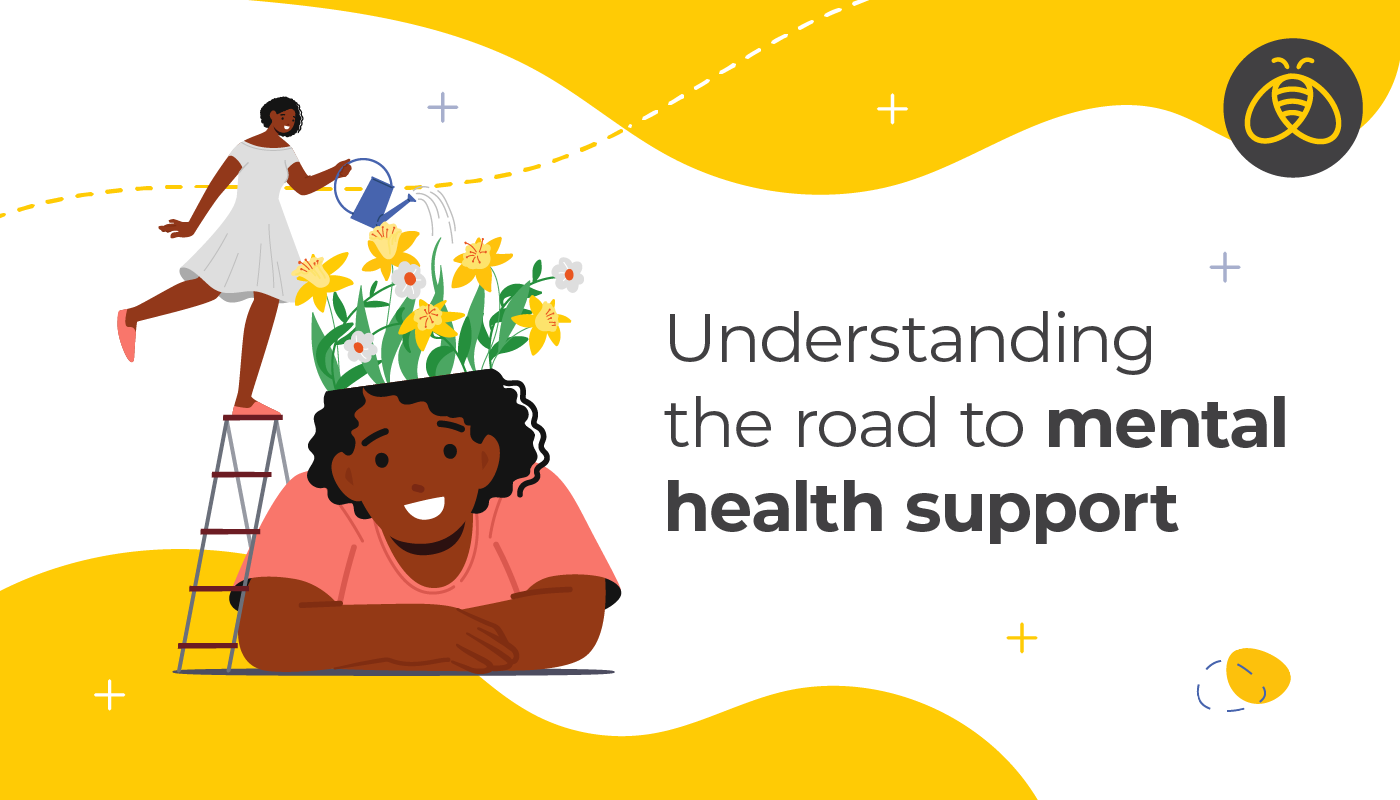The Importance of Sleep and How it Relates to our Overall Health
By: Benefits by Design | Tuesday March 14, 2023
Updated : Monday March 13, 2023
Take a snooze, nap or siesta. Get some shut-eye. Doze off. We spend about a third of our lives in slumber. The importance of sleep should not be overlooked. And since World Sleep Day is the Friday before Spring Equinox each year, we thought we’d spend some time going over the correlation between sleep and our overall health.
The Importance of Sleep – for Good Health
Sleeping rejuvenates us. It helps our bodies repair physical damage, and it allows our brains to slow down and make sense of the complexity of the day. On average, people should be getting about 7-9 hours of sleep per day.
Physical Health
When we are asleep, our bodies are still working away. Most of our hormone production occurs during sleep, including the hormone that helps us as we grow. Which means getting enough sleep as a child and teenager is extremely important. The same hormone is also responsible for making repairs on damaged cells and tissues. So, if you aren’t getting enough deep sleep, you won’t be able to recover as easily from minor or major physical issues. Your heart and blood vessels also get repaired during slumber.
Ever been tired and then felt hungry? You almost trick yourself into thinking that if you eat, you’ll get the energy you need. But it’s a lack of sleep causing the low energy. Sleep regulates the balance of the hormones that make you feel full or hungry. Lack of sleep creates an imbalance, and the hormone making you feel hungry spikes, while the full hormone goes down.
Getting enough sleep can also help to decrease your risk of heart disease, high blood pressure, stroke, and obesity.
Mental and Social Health
Our cognitive abilities are also greatly affected by the amount of shut-eye we get. We should not underestimate the importance of sleep when it comes to our mental health.
“Studies show that a good night’s sleep improves learning and problem-solving skills. Sleep also helps you pay attention, make decisions, and be creative.” – The National Heart, Lung, and Blood Institute (NHLBI)
Mental Illness Awareness and Overall Mental Health of Canadians
Our mood is also affected by how much sleep we are getting. A sufficient amount of zzz’s means we will react to situations with more forethought and compassion. And our overall outlook will be brighter. This all means that our social interactions will be easier, and we’ll be better able to help our friends and acquaintances.
8 Effects of Poor Sleeping Habits
On the other hand, a lack of sleep can have negative effects on both our physical and mental health. The following areas can be impacted, and is why the importance of sleep should not be downplayed.
- Neural pathways and networks – losing sleep means your brain isn’t able to repair and strengthen the connections in your brain. This affects our memory as well as our…
- Cognitive abilities – our problem-solving abilities and deductive reasoning skills are greatly diminished when we aren’t sleeping enough.
- Emotions – ever been around a toddler who needs a nap? Our emotions are amplified, and our reactions are less tempered when we’re tired.
- Insulin – “Sleep deficiency results in a higher-than-normal blood sugar level, which may raise your risk of diabetes.” – NHLBI
- Immunity – sleep deficiency lowers your body’s natural ability to fight infection.
- Physical coordination – our physical body isn’t able to respond as quickly to our brain’s instructions when we are tired. Plus, our reaction time to outside stimuli is delayed, increasing our risk of accident or injury.
- Risk of heart disease and high blood pressure – the importance of sleep when it comes to our cardiovascular system is clear. Sleep deficiency increases your risk of “heart disease, high blood pressure, obesity and stroke.” – NHLBI
- Low sex drive – because hormone production happens while we sleep, a lack of testosterone production due to chronic sleep deficiency can lead to a lower libido.
Rethinking Obesity and Its Impacts on Canadians and Their Benefits Plans
The Importance of Sleep – Getting the Right Amount
So, now that you know why it’s so important to catch enough zzz’s, let’s look at ways you can achieve this.
- Don’t take naps
- Keep caffeine consumption to the morning hours
- Stick to a bedtime schedule, get up and go to bed at the same time – even on the weekends
- Have a wind-down routine – do something relaxing, like reading a book or meditating.
- Make sure that routine doesn’t include electronic devices or TV – the light from these devices keeps your brain awake, meaning it will take much longer to fall asleep after switching off.
- Try not to eat for at least an hour before bed.
- Regular exercise keeps your natural rhythm working – just make sure you don’t exercise too far into the evening, as the endorphins will keep you awake.
- Reduce the amount of alcohol you consume. Alcohol and other substances have terrible effects on your ability to sleep, as well as the repairs and growth that occurs while we sleep.
The importance of getting enough sleep is not a new idea. And unlike starting a new fitness routine or diet, getting the right amount could be as simple as ensuring you go to bed on time. We understand that insomnia and other sleep disorders were not discussed, and therefore these could pose barriers to sleeping well for some.


